NEET Physics
NEET Physics syllabus from classes 11 and 12 has 6 prime units – Modern Physics, Mechanics, Thermodynamics, Electrodynamics, SHM-Waves and Optics. 45 out of 180 questions asked in NEET are from the NEET Physics section. In comparison to Biology and Chemistry, students often have a tough time dealing with Physics primarily because of the typology of questions appearing in this section. It consists of computations of numericals, theoretical and application types of questions and more.
Download the Complete Guide to NEET UG Prep
Download Now
Download NEET 2022 Question Paper With Solutions PDF: Download here
NEET Physics necessitates round-the-clock practice coupled with an in-depth comprehension of concepts and associated formulae. In order to score well in NEET, firstly learn and understand all important Physics topics, including formulae as specified in the syllabus. This would be the first step to cracking challenging numericals effortlessly. Physics numericals are deemed no less than a nightmare by students because of this they tend to overlook it and do not practise enough. As a result, they focus on strengthening other sections of NEET. This has been perceived as the major reason why students fail to score as much in NEET Physics, affecting their final NEET score.
Also Check: NEET 2022 Answer Key Pdf

One of the most common practices amongst NEET aspirants that has been observed is the rote learning technique, where one memorizes. While the approach has gained momentum in Chemistry and Biology section, helping students, the same cannot be applied when it comes to NEET Physics section. To get a thorough insight into your learnings, it is suggested to take up test series provided topic-wise for every topic and hence, correlating with its application practically.
Trending: NEET 2023 exam on 7 May
NEET Important Questions for Physics
Solve and practice the most important questions for NEET physics provided topicwise. Explore chapters through different topics provided in the link below –
|
Important NEET Physics Questions with answer keys and solutions – Physics MCQs for NEET |
Elastic property of Matter

Angular Momentum of Rigid Body

Parallel Axis Theorem
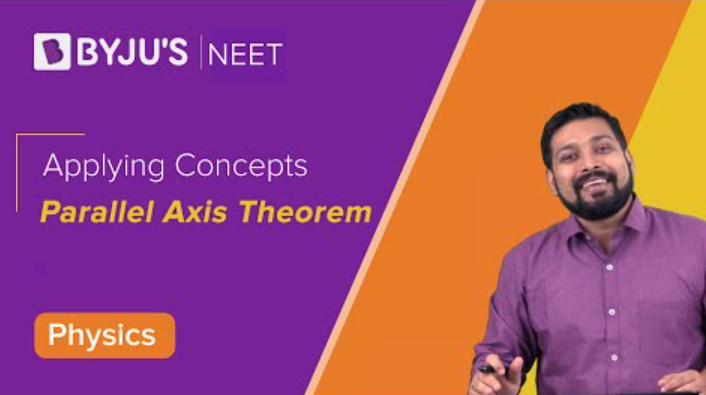
Perpendicular Axis Theorem
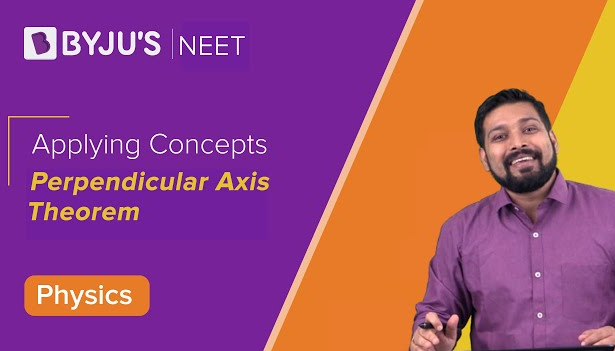
Application of Circular Motion
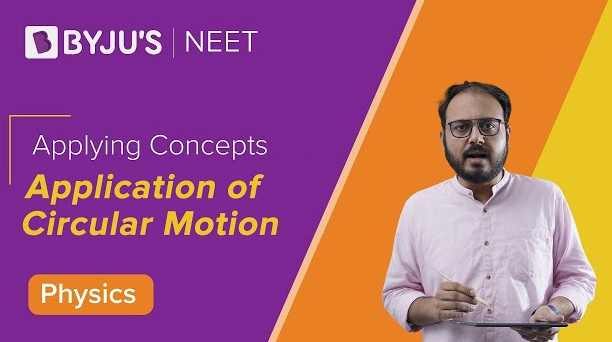
Non Uniform Circular Motion
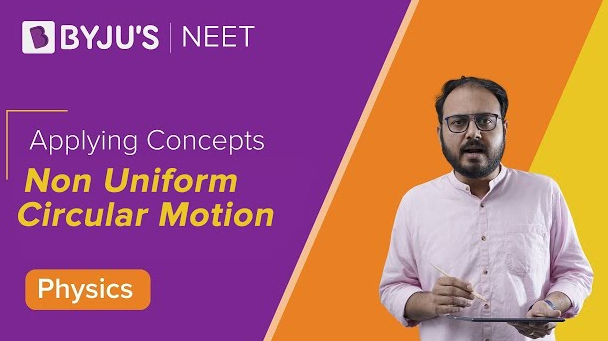
NEET 2022, 2021, 2020 Physics analysis – No. of questions and level of difficulty
| NEET Physics Analysis 2020, 2021, 2022 – Difficulty level and No. of Questions | ||||||||
|
Year of examination
|
Easy | Medium | Difficult | Grand Total | ||||
| No of Questions | Total Marks | No of Questions | Total Marks | No of Questions | Total Marks | No of Questions | Total Marks | |
| NEET 2020 | 37 | 148 | 7 | 28 | 1 | 4 | 45 | 180 |
| NEET 2021 | 15 | 60 | 25 | 100 | 7 | 28 | 47 | 188 |
| NEET 2022 | 23 | 92 | 21 | 84 | 6 | 24 | 50 | 200 |
NEET 2022 Question Paper Analysis – Physics
NEET 2022 Weightage – Number of Questions asked
| NEET 2022 Weightage – Number of questions | ||
| Class | Chapter | Number of questions |
|
Class 11
|
Gravitation | 1 |
| Kinetic Theory | 1 | |
| Laws of Motion | 1 | |
| Mechanical Properties of Fluids | 2 | |
| Mechanical Properties of Solids | 1 | |
| Motion in a Plane | 1 | |
| Motion in a Straight Line | 2 | |
| Oscillations | 1 | |
| System of Particles and Rotational Motion | 3 | |
| Thermodynamics | 1 | |
| Units and Measurements | 4 | |
| Wave Optics | 1 | |
| Waves | 1 | |
| Work Energy and Power | 1 | |
| 11th Total | 21 | |
|
Class 12
|
Alternating Current | 2 |
| Atoms | 1 | |
| Current Electricity | 5 | |
| Dual Nature of Radiation and Matter | 2 | |
| Electric Charges and Fields | 1 | |
| Electromagnetic induction | 2 | |
| Electromagnetic Waves | 2 | |
| Electrostatic Potential and Capacitance | 3 | |
| Moving Charges and Magnetism | 3 | |
| Nuclei | 2 | |
| Ray Optics and Optical Instruments | 2 | |
| Semiconductor Electronics : Materials, Devices and Simple Circuits |
3 | |
| Wave Optics | 1 | |
| 12th Total | 29 | |
NEET 2021 Question Paper Analysis – Physics
NEET 2021 Weightage – Number Of Questions Asked
| NEET 2021 Weightage – Number of questions | ||
| Class | Chapter | Number of questions |
|
Class 11
|
Gravitation | 2 |
| Kinetic Theory | 1 | |
| Laws of Motion | 1 | |
| Mechanical Properties of Fluids | 1 | |
| Motion in a Plane | 2 | |
| Motion in a Straight Line | 1 | |
| Oscillations | 2 | |
| System of Particles and Rotational Motion | 2 | |
| Thermal Properties of Matter | 1 | |
| Units and Measurements | 3 | |
| Work Energy and Power | 2 | |
| 11th Total | 18 | |
|
Class 12
|
Alternating Current | 3 |
| Current Electricity | 4 | |
| Dual Nature of Radiation and Matter | 2 | |
| Electromagnetic induction | 1 | |
| Electromagnetic Waves | 2 | |
| Electrostatic Potential and Capacitance | 6 | |
| Moving Charges and Magnetism |
4 | |
| Nuclei | 3 | |
| Ray Optics and Optical Instruments | 4 | |
| Semiconductor Electronics : Materials, Devices and Simple Circuits |
3 | |
| 12th Total | 32 | |
NEET 2021 Questions breakup
| Chapters | Questions Breakup |
| Modern Physics & Electronics | 8 |
| Magnetism | 7 |
| SHM & Wave | 3 |
| Optics | 4 |
| Electrostatics and Electricity | 11 |
| Heat & Thermodynamics | 4 |
| Mechanics | 13 |
NEET Physics Important Topics
| NAND Gate | Exclusive OR Gate |
| Exclusive NOR Gate | Depletion Region |
NEET Physics 2020 Analysis
NEET 2020 Weightage – Number Of Questions Asked
| Class | Chapter name | Number Of Questions |
|
Class 11
|
Mechanics | 12 |
| Heat & Thermodynamics | 5 | |
| Waves | 1 | |
|
Class 12
|
Magnetism | 6 |
| Modern Physics | 8 | |
| Electricity | 9 | |
| Optics | 4 |
Given below is topic-wise weightage as seen in NEET 2020 Physics section. Take a look:
| Name of Unit | Weightage (approximate) |
| Physical World and Measurement | 2% |
| Kinematics | 7% |
| Laws of Motion | 7% |
| Work, Energy and Power | 4% |
| System of Particles and Rotational Motion | 4.50% |
| Gravitation | 4.50% |
| Properties of Bulk Matter | 9% |
| Oscillations and Waves | 7% |
| Thermodynamics | 4.50% |
| Behaviour of Perfect Gas and Kinetic Theory | 2% |
| Electrostatics | 4% |
| Current Electricity | 9% |
| Magnetic Effects of Current and Magnetism | 7% |
| Electromagnetic Induction and Alternating Currents | 4% |
| Electromagnetic Waves | 2% |
| Optics | 4.50% |
| Dual Nature of Radiation and Matter | 4% |
| Atoms and Nuclei | 7% |
| Electronic Devices | 7% |
Compared to previous years, NEET Physics 2020 was relatively easier. Close to 33% of the Physics section was based on NCERT. Out of all the units, Mechanics carried the highest weightage. 12 questions were asked from the unit.
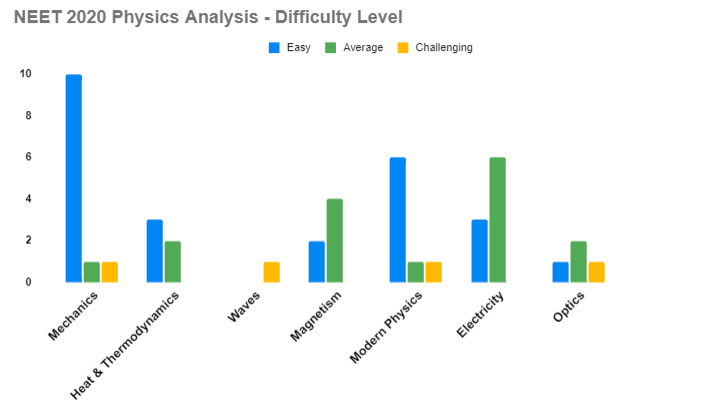
Graph indicating Chapter name vs. the number of questions asked, segregated as per difficulty level (NEET 2020).
NEET Physics 2019 Analysis
NEET 2019 Physics section was deemed average in terms of complexity and length. Several questions were formula based. To crack the section with good marks, a strong and solid hold on concepts with its prompt application was inevitable. Aspirants found most of the questions appearing from NCERT syllabus, precisely close to 60%. The Physics section in particular was found to be comparatively easier. NEET 2019 was considered to be easier than the previous years. Most of the questions were asked from the Mechanics and Modern Physics section
Equal distribution of questions from both classes 11 and 12 was also taken note of. The topics that dominated NEET Physics section were Modern Physics and Mechanics, almost 50% of the section. Easier questions appeared from units such as Current Electricity and Magnetic Effect of Current. Also, since the paper for NEET 2019 was easier, there were high chances for the NEET cut-off to have increased.
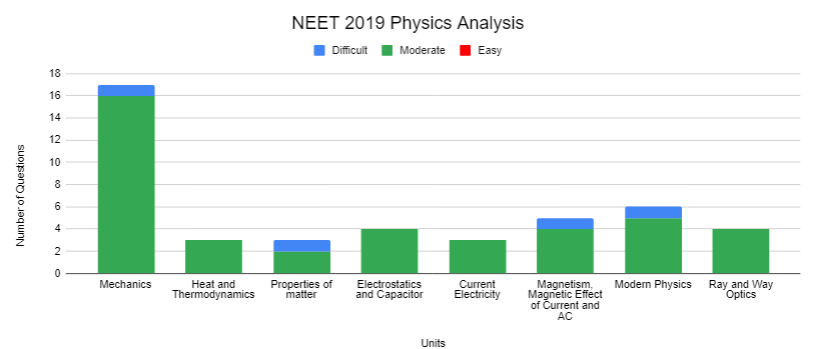
Given below is the NEET Physics 2019 Analysis chapter-wise:
| Name Of The Unit | Number of Questions | Weightage | Marks |
| Current Electricity | 3 | 6.66% | 12 |
| Electrostatics and Capacitor | 4 | 8.88% | 16 |
| Heat and Thermodynamics | 3 | 6.66% | 12 |
| Magnetism, Magnetic Effect of Current and AC | 5 | 11.11% | 20 |
| Mechanics | 17 | 37.82% | 68 |
| Modern Physics | 6 | 13.33 | 24 |
| Properties of matter | 3 | 6.66% | 12 |
| Ray and Way Optics | 4 | 8.88% | 16 |
| Total | 45 | 100 | 180 |
Also Check: NEET 2023 Syllabus
NEET Physics Weightage: NEET 2006-NEET 2019
The table below depicts the important chapters and the corresponding marks it carries. The last column depicts the average number of questions, cumulatively, on the basis of previous years’ trends from the year 2006 onwards up till NEET 2019. Take a look at the table below:
| Name of Unit | Chapter’s name | Average no. of questions |
| Physical World and Measurement | Physical World and Units and Measurement | 1 |
|
Kinematics
|
Motion in Straight Line | 2 |
| Motion in a Plane | 1-2 | |
| Laws of Motion | Laws of Motion | 2-3 |
| Work, Energy and Power | Work, Energy and Power | 2 |
| System of Particles and Rotational Motion | System of Particles and Rotational Motion | 2-3 |
| Gravitation | Gravitation | 2 |
|
Properties of Bulk Matter
|
Mechanical Properties of Solids | 1 |
| Mechanical Properties of Fluids | 1 | |
| Thermal Properties of Matter | 1-2 | |
|
Oscillations and Waves
|
Oscillations | 1-2 |
| Waves | 1-2 | |
| Thermodynamics | Thermodynamics | 1-2 |
| Behaviour of Perfect Gas and Kinetic Theory | Kinetic Theory | 1 |
|
Electrostatics
|
Electric Charges and Fields | 1-2 |
| Electrostatic Potential and Capacitance | 1-2 | |
| Current Electricity | Current Electricity | 4 |
|
Magnetic Effects of Current and Magnetism
|
Moving Charges and Magnetism | 2 |
| Magnetism and Matter | 1 | |
|
Electromagnetic Induction and Alternating Currents
|
Electromagnetic Induction | 1 |
| Alternating Currents | 1 | |
| Electromagnetic Waves | Electromagnetic Waves | 1 |
|
Optics
|
Ray Optics and Optical Instruments | 2 |
| Wave Optics | 1 | |
| Dual Nature of Radiation and Matter | Dual Nature of Radiation and Matter | 2-3 |
|
Atoms and Nuclei
|
Atoms | 1-2 |
| Nuclei | 2 | |
| Electronic Devices | Semiconductor Electronics | 3 |
| Communication Systems | Communication Systems | 0 |
NEET Physics Preparation Tips:
Mechanics:
Topping the list of the top-scoring chapters for Physics, Mechanics, as seen above, is clearly one of the most important units. 17 out of 45 questions appeared from the unit alone. It, in turn, comprises 9 chapters – Class 11 from Chapter Units and Dimensions to Chapter Oscillations and Waves.
Find below the list of chapters categorized under Mechanics along with the corresponding weightage (previous trends):
| Chapter Name | Weightage |
| Gravity | 10.70% |
| Kinematics | 13% |
| Laws of Motion | 7.10% |
| Mechanics of Solids and Fluids | 10.10% |
| Oscillations | 2.40% |
| System of Particle and Rotational Motion | 23.10% |
| Units and Dimensions | 7.77% |
| Waves | 18.30% |
| Work, Energy and Power | 7.70% |
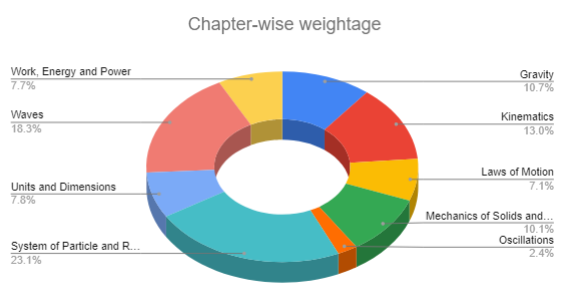
A few important concepts covered in Mechanics are:
| Dimensional and error analysis |
| Acceleration due to gravity |
| Conservation of momentum & energy and collisions |
| Equations of motion |
| Kepler’s laws |
| Mechanics of common forces |
| Moment of inertia and dynamics of rotational motion |
| Pascal’s law, Bernoulli’s principle, viscosity and Reynolds’ number |
| Potential energy of a spring |
| Projectile and circular motion |
| Relative motion |
| Satellites |
| Simple Harmonic motion |
| Standing waves & Beats, Doppler effect |
| Transverse and longitudinal waves: superposition and reflection |
Heat and Thermodynamics:
Every year, around 3 questions appear from this unit, carrying a weightage of 6.6%.
The table below depicts the chapters under this unit:
| Chapter Name | Weightage |
| Thermodynamics | 63.2% |
| Thermal Properties | 33.3% |
| Kinetic theory of gases | 3.5% |
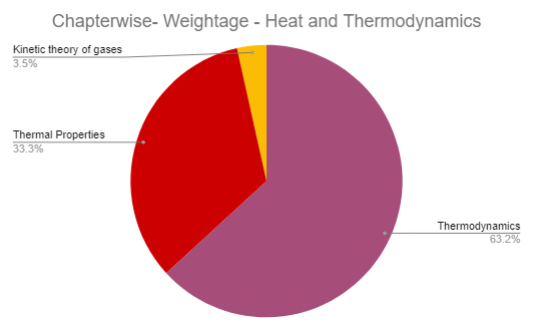
A few important concepts covered in Heat and Thermodynamics are:
| First Law of Thermodynamics and Heat Capacity |
| Heat engines, refrigerators and heat pumps |
| Heat transfer |
| Law of equipartition of energy, specific heat capacity and mean free path |
| Newton’s Law of Cooling |
| Reversible and irreversible processes and Carnot engine |
| Second law of thermodynamics |
| Specific Heat Capacity and Calorimetry |
| Thermodynamic state variables, equation of state and thermodynamic processes |
| Transfer of Thermal Expansion |
Electrostatics and Magnetism
This unit carries a weightage of 16.2% and the chapters are interrelated. Under this unit, the chapter Electrostatic potential and capacitance weighs nearly 35.6%, followed by Moving charges and Mechanism weighing around 31.5%. The unit majorly covers important numericals that appear in the examination. Listed below are some topics which should not be missed at all:
- Electrostatic potential and work done
- Motion in electric and magnetic fields
- Potential energy in an external field
- Cyclotrons and Torque on Current loop
- Magnetic dipole
Also Explore:
Here is a list of chapters and the corresponding weightage of chapters under this unit:
| Chapter Name | Weightage |
| Electric charges and fields | 23.30% |
| Electric potential and capacitance | 35.60% |
| Electromagnetic waves and communication systems | 6.80% |
| Magnetism and matter | 2.70% |
| Moving charges and magnetism | 31.50% |
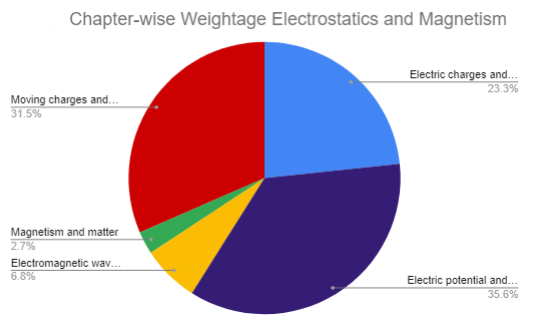
Some significant topics are:
| Ampere’s Circuital law |
| Bandwidth and modulation of signals in communication systems |
| Bar magnet and magnetic field lines |
| Biot-Savart Law |
| Capacitance and Capacitors |
| Continuous charge distribution and Gauss’s Law |
| Electric charge and Coulomb’s Law |
| Electric field, field lines, flux |
| Electromagnetic waves and spectrum |
| Electrostatic potential and work done |
| Electrostatics of conductors and Dielectrics |
| Force between two parallel currents |
| Motion in electric and magnetic fields and Cyclotrons |
| Potential energy in an external field |
| The earth’s magnetism |
| Torque on current loop and magnetic dipole |
Kinematics:
Kinematics is one of the most interesting and crucial units of NEET Physics. The problems based on the evaluation of the maximum height, range, velocity and time of flight (2 D motion) are important from the examination point of view. Maintain proper notes of all the theorems, formulas, and derivations to assist your last-minute preparations. Strengthen your concepts on acceleration, displacement, average, and relative velocity to score well from this unit.
The students can follow NCERT books for NEET to strengthen their theoretical knowledge. For numerical problems, the students can refer to solved problems in Physics by Schaum. Concepts of Physics by H C Verma (Vol 1 & Vol 2) is helpful for both theoretical and numerical physics.
Stay tuned with BYJU’S to know more about NEET eligibility, exam pattern, application form, preparation tips, previous years’ question papers, sample papers, NEET Physics study materials and more.
Note: The inferences discussed in the aforementioned tables are an average, cumulative from previous years’ question papers. Data in these tables is an average, (i.e., weightage, number of questions) they are approximate values and subject to vary.
| Recommended Question Papers for NEET Exam: |



Frequently Asked Questions on NEET Physics
How To Study Physics For NEET?
1. Be well-versed with NEET syllabus and exam format
2. Master NCERT, gain conceptual clarity
3. Prepare notes, make a list of formulae and derivations
4. Solve as many previous years’ question papers
5. Practise from exemplars and other relevant reference books, solve as many questions as possible
6. Take up a mock test every day
7. Focus on strengthening weak areas
8. Improve speed and accuracy levels by practising as much as possible
Which Book Is Best For NEET Physics?
NCERT must be mastered. Apart from that one can refer to Concepts of Physics by H.C Verma, D. Mukherjee for MCQs, DC Pandey, BM Sharma (JEE Advanced version), NCERT Exemplar, Irodov and Krotov (for specific topics), coaching modules, previous years’ papers.
How To Score 160 In Physics NEET?
NEET Physics section comprises 45 questions, each carrying 4 marks. Hence, to score 160 and above, one must get at least 40 questions right. NEET physics is the most challenging section, to crack it, one must practise as many questions. Get well-versed with the format by referring to previous years’ papers to get an idea of the difficulty level.
1. Gain conceptual clarity
2. Prepare a list of formula and derivations
3. Pick the right resources. Refer to reference books for NEET, some of them are – Concepts of Physics by H.C Verma, D. Mukherjee for MCQs, DC Pandey, BM Sharma (JEE Advanced version), NCERT Exemplar, Irodov and Krotov (for specific topics), NCERT at your fingertips
4. Practising is key in Physics. Solve previous years’ papers
5. Take up mock tests
6. Improve your levels of speed and accuracy by practising at least 150-200 questions every day
Which Chapters Are Important In Physics For NEET?
Important chapters can be decided based on two factors – difficulty level and frequency of questions from the previous years’ paper analysis. Some important concepts are:
Mechanics, Current electricity and electromagnetic induction, Heat & Thermodynamics, Electrostatistics & Magnetism, Ray Optics, Modern Physics, Rotational motion, SHM & Waves, Electronics
Is NCERT Fingertips Physics Enough For NEET?
NCERT Physics at your fingertips is a good book for beginners, helps get a solid foundation. Helps enhance skills and easy memorization of formulae for questions based on formulae. But if you are looking at scoring 600+, you need to refer to other books as well, such as HC Verma, SL Arora, NEET Guide, MTG Books, MTG AIIMS Assertion, and Reasons.
Is NCERT Physics Enough For NEET?
As per students and even experts, NEET Physics is the most challenging section and demands conceptual clarity. NCERT Physics covers concepts and some numericals. Hence, NCERT books alone will not suffice as one needs to solve and practise more questions to secure a good rank.
very useful explanation.
Love it . Thankyou so much
Thanks for this explanation.
Very useful information. Thank you soooo much
Very clear cut details. Thank u so much 👍
Very well explained,,, hats off to u
Thank you so much
Very useful to analyse the important topics, that too with the important concepts covered
thank you
The clarity of explanation and the list of resources enlisted are fabulous and helpful.
Great explanation for NEET physics
Very useful 👍
thank you so much
Very deeply analysis is given, I like it 😊😊😊😊😊😊😊😊